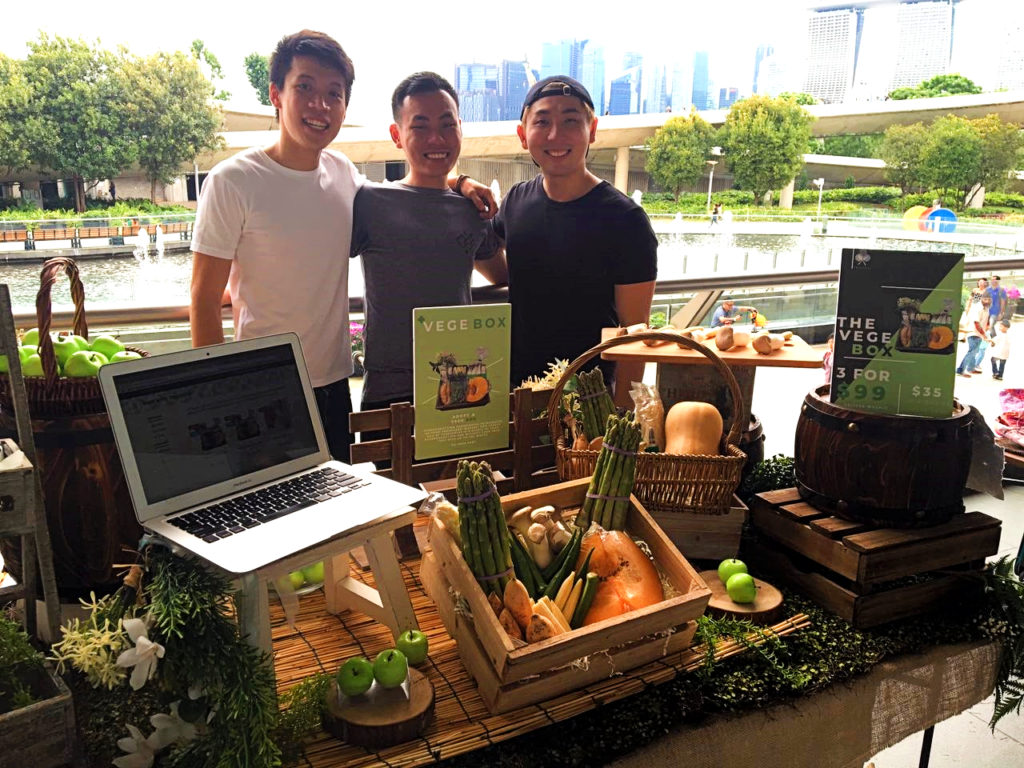The idea behind TreeDots is simple: gather food that is perfectly fine but rejected by supermarkets and retailers, and then sell it to F&B establishments and households at lower prices. Restaurants and individual households can save money, and fresh food that would have otherwise ended up in landfills or incinerators makes it onto our plates instead.
KrASIA spoke with Nicholas Lim, one of TreeDots’ co-founders, to hear his thoughts about salvaging edible food and challenges that might prevent it from truly taking off.
The following interview has been edited and consolidated for brevity and clarity.
KrASIA (Kr): The story behind TreeDots starts with a container of avocados and import restrictions. What happened?
Nicholas Lim (NL): When I was interning at a shipping and commodities firm, there was a batch of avocados that went from Mexico to China, and my colleague was in charge of this transaction. China’s regulations are super strict—they would test ten cartons, and if one had any problems, the entire container would be rejected. In that deal, one carton had some problems, so that’s what happened. We asked the Mexican seller for a discount and sold the avocados to a buyer in the Philippines.
I discussed the case with two friends from secondary school, Tylor Jong and Jiacai Lau, and we decided to start something. It sounded fun.
Kr: The three of you established TreeDots in 2017. At what point did you feel the company could really take off in Singapore?
NL: We started by carrying fruits, vegetables, and dried goods, but we realized that there was a lot of unsold inventory in the meat and seafood segments as well. One of the biggest poultry suppliers in Southeast Asia, decided to come on board and use TreeDots. Then another conglomerate joined up. We were the first ones [in Singapore] to do food loss alleviation for meat products, which are among the most expensive items in F&B procurement. By being able to offer cost savings there, we were able to grow very quickly.
TreeDots is also in Kuala Lumpur. When we expanded there last year, it was at the start of the pandemic, so we immediately went into social commerce instead of starting with supplying businesses. The idea is the same, but the majority of TreeDots’ income in KL is from group buying.

Kr: Aside from fresh food and dried goods, TreeDots also carries products like desserts, snacks, and health supplements. Is the platform shaping up to be an online supermarket with a different sourcing model compared to existing chains?
NL: It’s a fair characterization. Right from the beginning, we’ve wanted to reduce food loss, which stems from inefficiencies in the entire F&B supply chain. Clearing unsold inventory helps, but that’s just the tip of the iceberg—it is a solution that does not prevent food wastage. We looked deeper, and we found that the majority of food loss comes from suppliers’ biggest customers: supermarkets. They have requirements to make sure everything looks nice and reject the rest. Most of our inventory comes from rejections from retailers.
Kr: Eliminating food waste seems like an idea that is easy to get on board with. What’s stopping people?
NL: I think a lot of this is about how society shapes what food “should” look like. In the past, when people were more in touch with their food, they would go to wet markets, they would see how chickens get slaughtered, or they might live close to farms and see how vegetables grow. As children, we learned that apples are red and bananas are yellow—later, if we see an apple that is not perfectly red, it’s “bad.”
What we’re changing is a deep-rooted issue that has been taught since we were young, and that’s probably why the idea behind TreeDots has not been adopted as quickly as we had hoped.
Kr: How else does TreeDots link up with broader objectives and food production networks in Singapore?
NL: We are working closely with the Singapore government for the “30 by 30” food goal [to produce 30% of the city-state’s nutritional needs domestically by 2030]. A lot of moving parts are linked to this: two years ago, food loss was 800,000 tons per year, an amount that could feed Singapore for seven months. Cutting that loss would help limit the imports that we need and allow local farms to ramp up production to compete with overseas exporters.
Read this: Sayurbox is developing a sustainable agricultural supply chain in Indonesia

